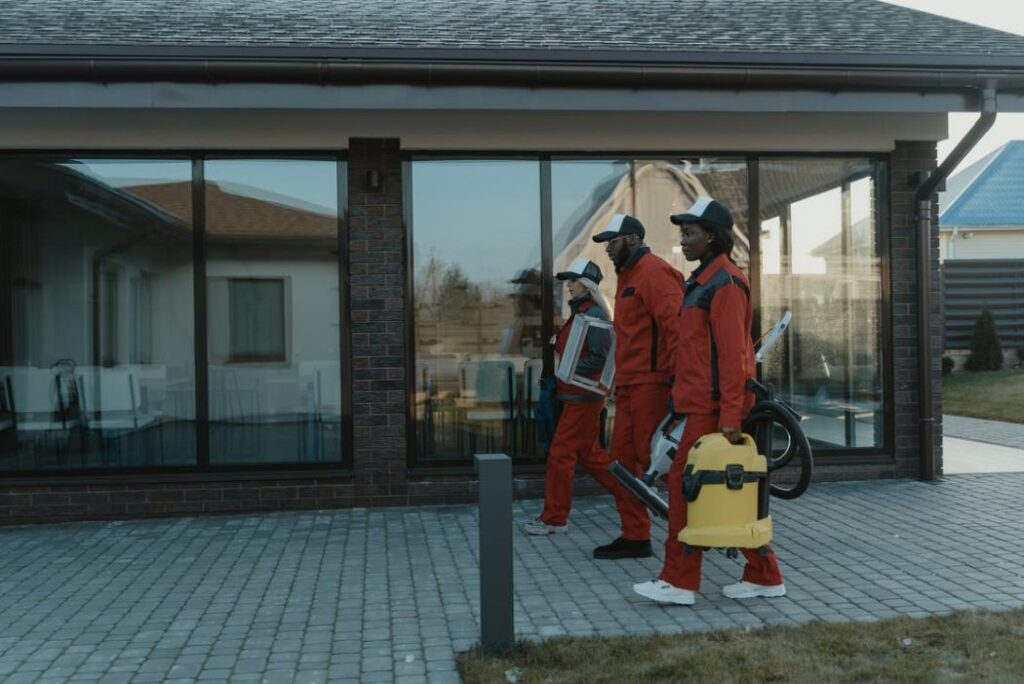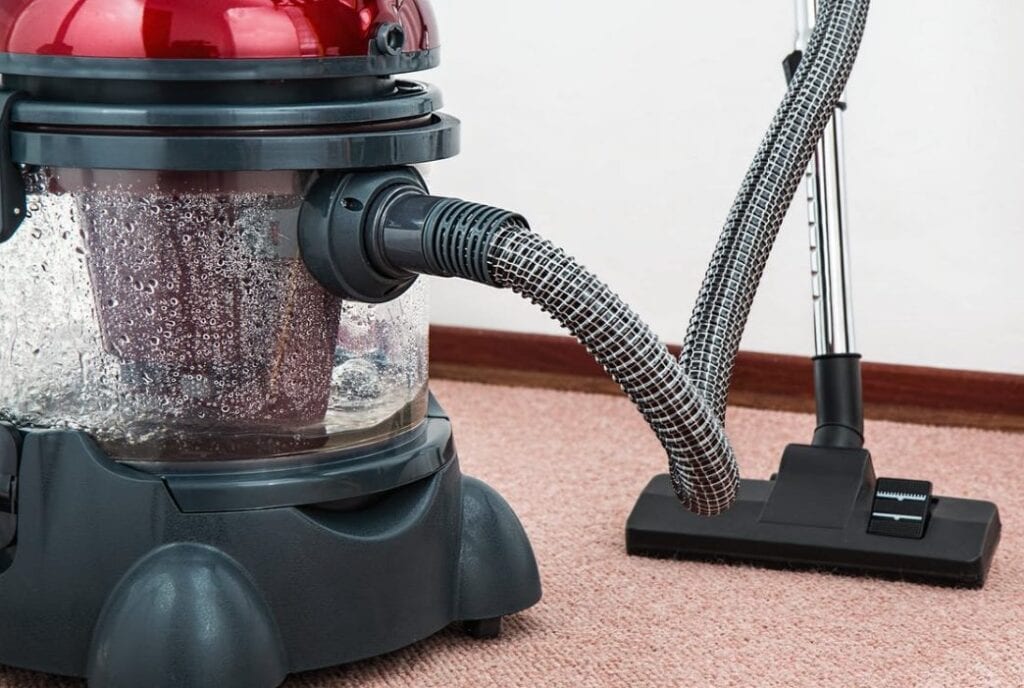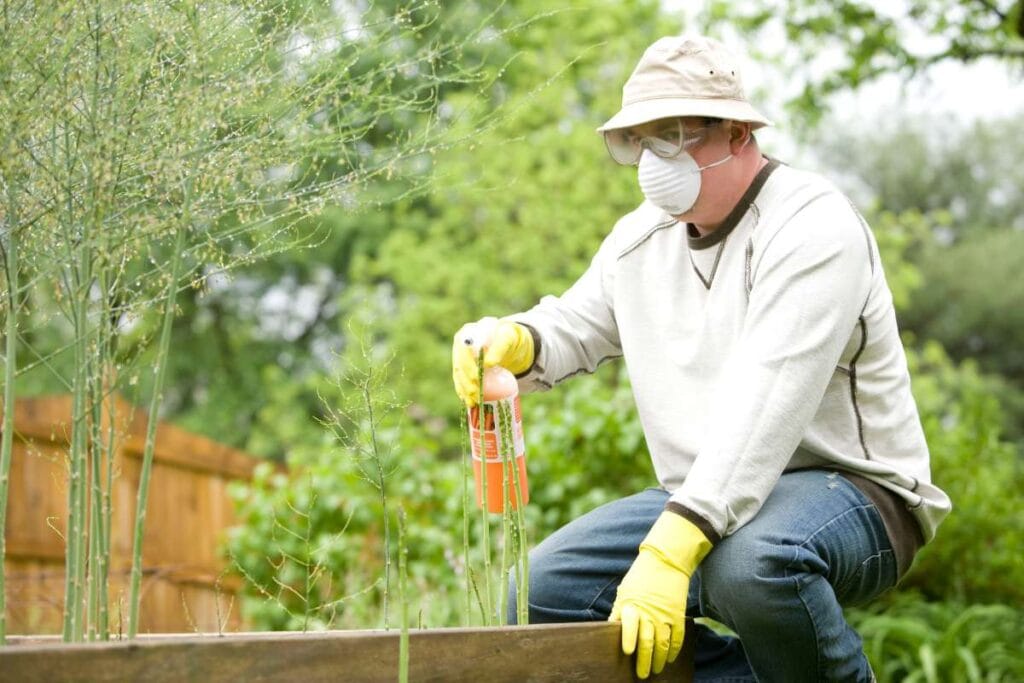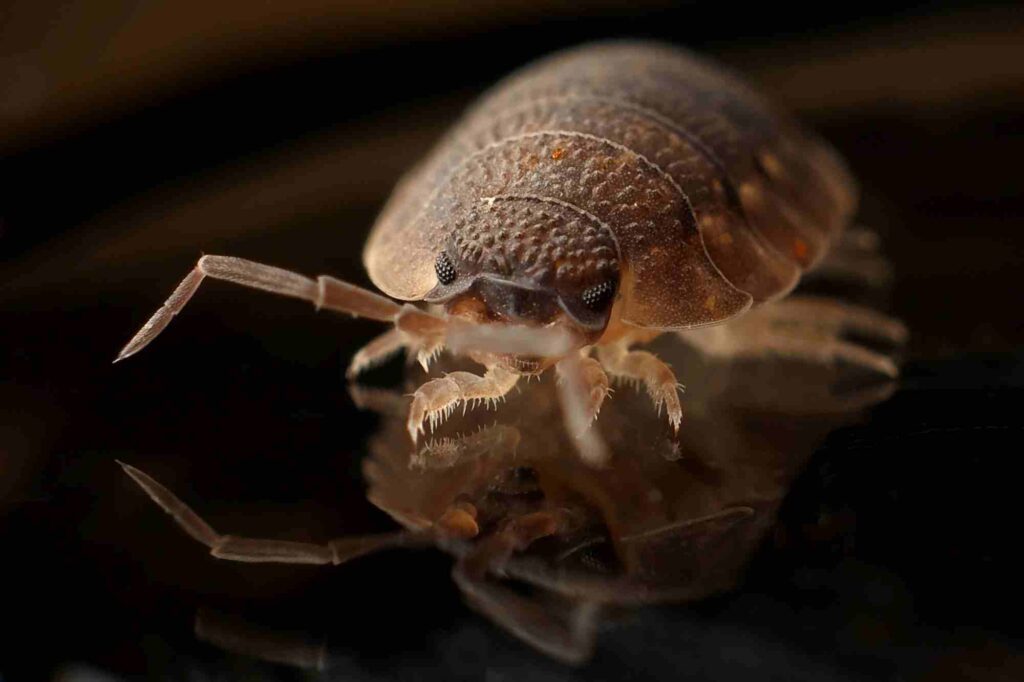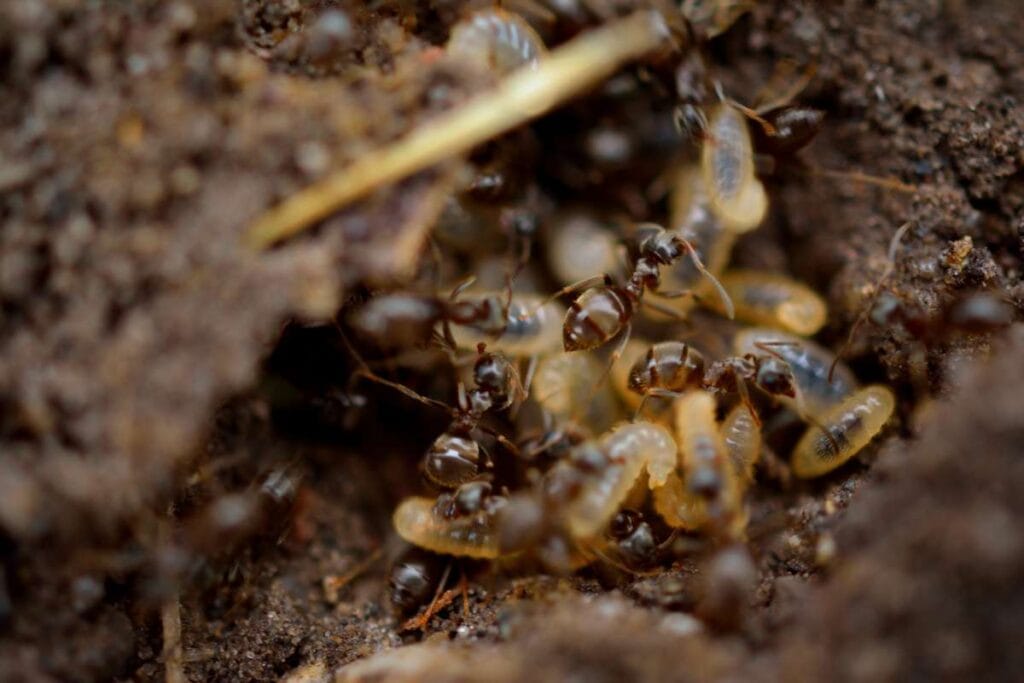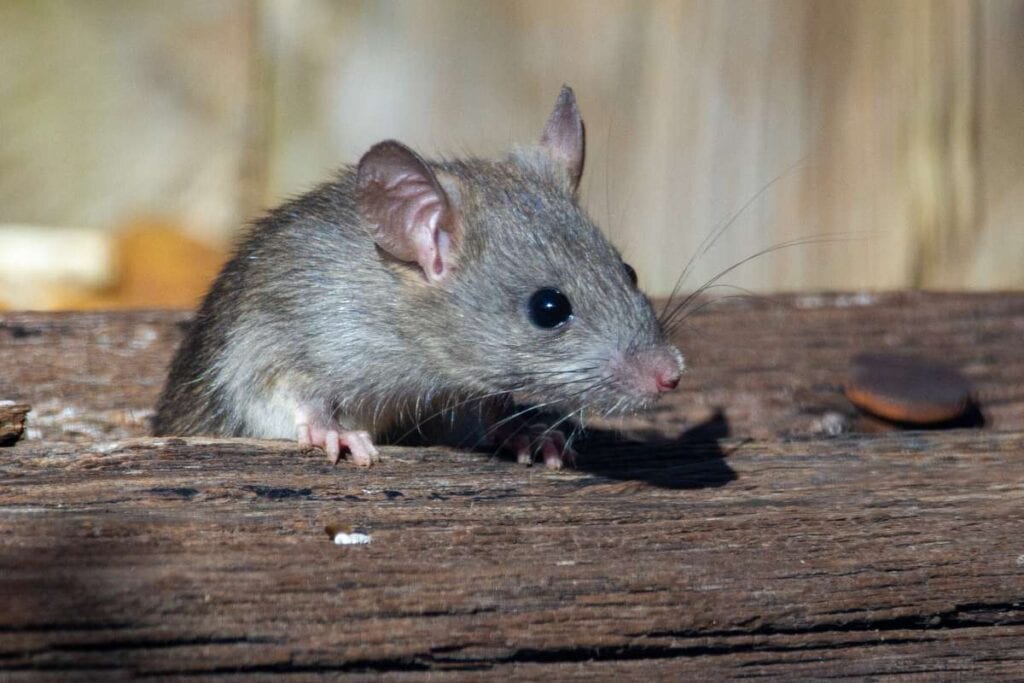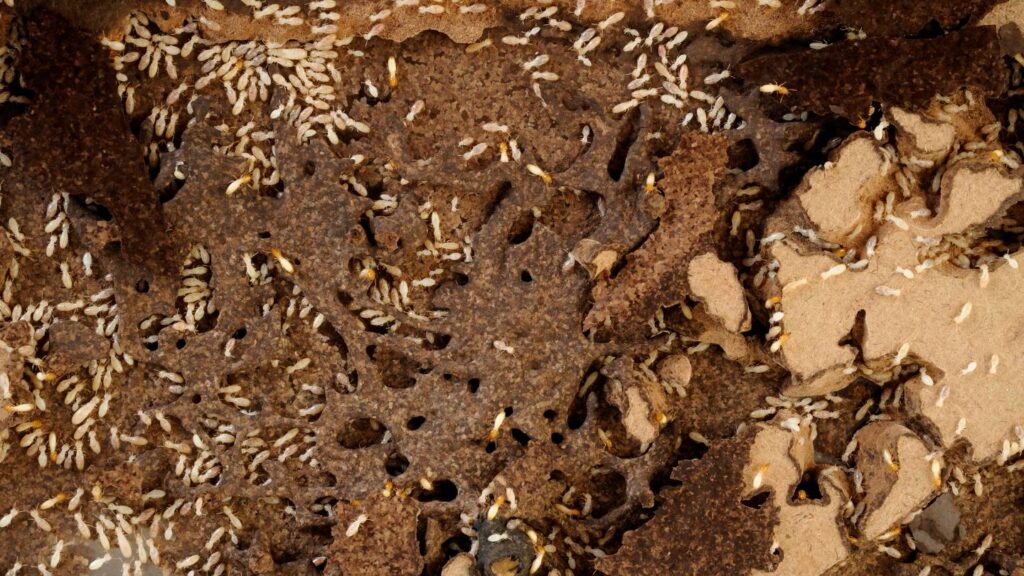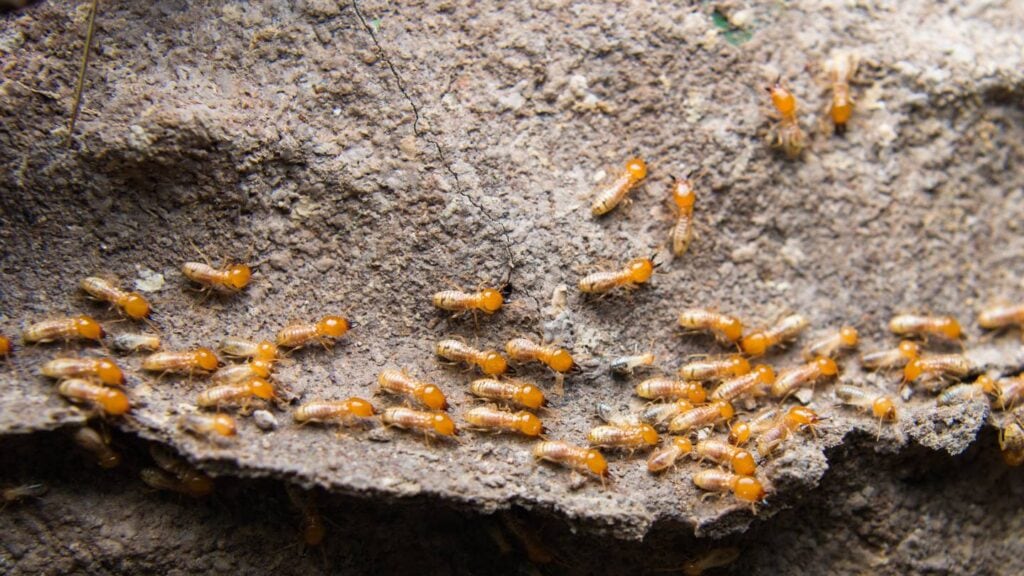Have you considered long-term solutions to protect our vital pollinators from destructive pests? The search for environmentally sustainable alternatives becomes more important as bee populations face increasing dangers. In this essay, we will delve into the world of beekeeping to discover if there are effective natural ways to control pests and preserve these important populations of insects.
To sum up, there are natural ways to keep pests out of bee hives. Beekeepers have devised creative ways to keep colonies healthy without using harsh chemicals. For example, they put hives strategically and bring in predator insects. This piece explains the steps and methods bee lovers and farmers can use to ensure their buzzing friends stay healthy.
However, the tactics outlined in this article are based on something other than theory; they have been tried and proven by experienced beekeepers. Now that we've established that bees are an important part of our food web, let's look at some natural ways to keep them healthy and flourishing.
How to Identify Common Pests in Bee Hives
Varroa Mites:
The Effects On Bee Well-Being And The Persistence Of Colonies:
- Varroa destructor mites are parasitic mites that mostly attack honeybee nests. They stick to adult bees and growing broods, feeding on the bees' bodily fluids and spreading different viruses. It greatly affects bee health, weakening immune systems, deforming their wings, and shortening their lives. A heavy infestation can cause the colony to fall apart if not handled. The mites weaken the bees, making them more likely to get sick or hurt by things in their surroundings.
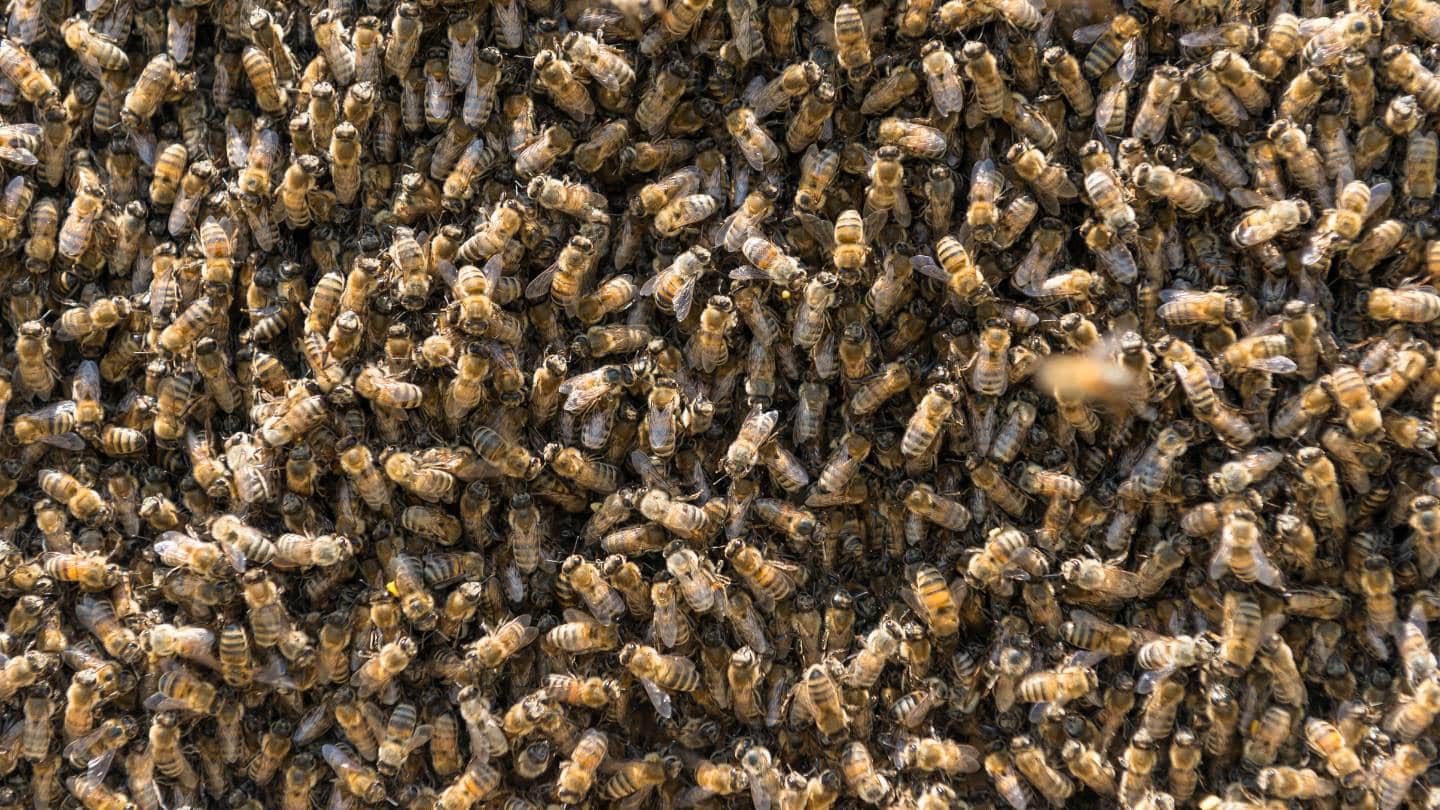
Weaknesses And Current Control Methods:
- Chemical Treatments: Acaricides and other chemicals are used by many beekeepers to get rid of Varroa mites. But using these poisons too much can make bees resistant, which is bad for their health.
- Integrated Pest Management (IPM): Biological control, cultural practices, and pharmaceutical therapies are all part of this approach's arsenal. Integrated pest management (IPM) can help cut down on chemical use, but it only works if it is closely watched and changed to fit the needs of the area.
- Genetic Breeding: Breeding bees with characteristics that increase their resistance to Varroa mites is one strategy being considered. This strategy needs time to be widely adopted, but it shows promise.
Small Hive Beetles:
Identifying And Describing Traits:
- Black little beetles ranging from an eighth to a quarter of an inch are known as small hive beetles (Aethina tumida). Typically, they are lustrous, dark brown or black, and they have clubbed antennae. Larvae of beetle species eat pollen, honey, and bee broods, causing harm to beehives. Adult beetles lay their eggs in these structures.
What Happened To The Colony And The Risks It Faces:
- Honey Contamination: As they feed on pollen and honey, the larvae of the little beetle contaminate these foods with their waste. Because of this, honey and other bee products may not be as good as they may be.
- Bee Brood Damage: Besides harming the colony's ability to reproduce and maintain a stable population, larvae can feed on growing bee broods.
- Stress and Agitation: Small Hive Beetles can make bees stressed, which can cause them to leave the colony, cause problems within the colony, or even cause it to fail if the infestation is bad enough.
Natural Ways to Get Rid of Pests
Natural pest management aims to rid your house or business of common pests without resorting to toxic chemicals. Employing natural, tried-and-true pest control methods is preferable to using toxic chemicals and pesticides.
Hire pest control experts to eliminate undesirable bugs without endangering your health. In addition to controlling cockroaches and termites, we also handle spiders, ants, rats, mosquitoes, and other pests. Our mobile vans service the whole Sydney region!
Our team of pest control professionals can explain natural pest control methods and safe treatments. The use of pyrethrum is a typical method for controlling natural pests. It finds widespread use in organic gardens, farms, and restaurants across the globe, including in Australia. To learn more about our pest control services, which are safe for children and pets, and our natural pest control methods, please get in touch with us.
Locating your region's most cost-effective pest control service could require effort and time. For instance, you may find many pest control services in Sydney, each of which would boast that they are the finest.
Natural Pest Control
We have developed a simple 5-step plan for naturally getting rid of pests in your place. Since we've been providing professional, honest, and high-quality pest control services in Sydney for years, you can be sure we will eliminate pests without using dangerous methods. Here are some easy, natural ways to get rid of pests:
Get Rid Of Water Sources
During a house inspection, locating potential entry and hiding spots for bugs should be your primary objective. You need to ensure you're not getting artificial water or organic food. Look under the kitchen sink and behind the fridge for any signs of trouble.
Pests like cockroaches and rats will multiply exponentially in these regions if water pools there. No rodent or spider can survive without water. Remove the water source by fixing any leaking pipes and drying any dampness.
Clear The Clutter
Are there piles of things around your house that you don't need? It's time to get rid of them. There could be stacks of old newspapers and magazines, old shoes in the closet, and other things you don't need. These things are perfect for bugs to hide and can also be used to make nests. Also, it's harder to clean up around a lot of stuff, so there is more food for many bugs. If you have any old boxes lying around, get rid of them. Bugs love cardboard.
Please sort through our house and remove anything you aren't using or needing. Before you can even begin to sort through your remaining possessions, you should sell or donate these items. Keep all shelves and drawers at least one inch off the ground and wall-to-wall. Food, particularly pet food, should be stored in plastic containers with tight lids.
Keep The Environment Clean.
You eliminate the insects' food supplies and clean up their marks and droppings. Make sure to clean under all of your appliances, including the stove, dishwasher, refrigerator, and all of the worktops, cupboards, and other hard surfaces in your home. Use the attachments with your vacuum cleaner to make accessing those hard-to-reach places easier.
After the first cleaning, it's important to keep cleaning regularly to remove any potential food and water sources. Quickly clean up any spills or crumbs, wash your dishes as soon as they become filthy, and take out the trash before you turn in for the night. Drain your pets' bowls before bed and fill them up first thing in the morning. Additionally, remember to cover your drains while they are not in use.
Be careful to remove dead cockroaches from hiding spots, such as under furniture, if you're dealing with a cockroach infestation. When they decompose, they release roach dust, which some individuals are allergic to or have asthma attacks because of.
Eliminate Any Potential Openings
The next step is to seal any openings to keep bugs out. These are typically seen in bathrooms and kitchens where pipes enter your home. Work outward from the kitchen and bathroom by concentrating your efforts there. Install weather stripping around your windows and doors, and use caulk, plaster, or cement to fill in any cracks and gaps where bugs could get in.
Put Out Baits For Pests
Following the steps above may have yet to fix your pest problem after a few weeks. It may be time to use natural and organic bug baits. These are useful around the house because they kill bugs by trapping them in special containers or keeping them from getting too close. Ensure no dangerous chemicals are used to keep the bug control safe for kids and pets.
Natural Bee Colony Pest Control
Is dealing with bugs an issue for you? If so, you've exhausted all possible options. Perhaps you've tried using strong chemicals on your garden plants, only to have them perish. You may have attempted trapping bugs in the past, only to feel sorry for them afterwards. Instead of using cruel chemicals or traps, there is a more compassionate pest management method.
Getting rid of pests naturally is a great way to keep your home clean and your family healthy. You don't want bugs or strong chemicals in your home, but you don't want them to stay out.
What you see in your garden is also real. If you use a lot of harsh pesticides on your garden, the produce you eat will also be full of chemicals. Below is an article outlining the benefits of adopting organic pest control on your property. Find out why organic pest control is a smart option if you still hesitate to use it.
Organic Pest Control Smells Better
Is it common for pesticide chemicals to cause a burning feeling in the nose? Since organic pest management methods do not use these harsh chemicals, they are less likely to irritate the skin. You can locate organic pest control solutions with reduced scent if you have a particularly sensitive nose.
Your nose might not be too sensitive to the smell of pesticides, but you might still want to use organic pesticides. Natural pest control products can smell nice, which is better than the smell of chemical sprays.
Eco-Friendly Organic Pest Control
Choosing gentler pest control treatments on the planet is simple if you're concerned about environmental issues. This is crucial if you intend to apply pesticides to your garden while it is outdoors. The chemicals used to make alternative pesticides are often so toxic that they leach into the soil and destroy it.
Some of the toughest non-organic ways to get rid of pests can kill other plants, too. Chemicals that are bad for you are not in organic pest control. It's eco-friendly, so you can use it to keep bugs out of your garden without worrying about harming the earth.
Organic Pest Control Outperforms Chemical Sprays
Are you aware that pests can evolve a resistance to pesticides? Because organic goods employ tried-and-true biological techniques to ward off pests, it is highly unlikely that they will develop a tolerance.
However, pests will eventually become accustomed to chemical sprays and continue entering your home or garden, so they are only effective for a limited time. You risk damaging the soil and your plants if you spray many different chemicals, but you might keep pests away for a little longer.
Organic Pest Control Is Better For Families
No one wants to bring something that could hurt people into their home, whether they live alone or have a large family. The chemicals used in chemical pesticides contain many substances that people should never consume. When compared, organic pest control treatments offer several safety benefits.
If you have kids living with you, you should consider this very seriously. Keep children away from pesticides and other similar products. The effects of organic pest control treatments are far less severe if your youngster ingests one than those of chemical products.
How To Remove Bees Without Killing Them?
The number of honey bees is gradually declining. Because they help plants produce food and other products through pollination, these insects are among the most vital in the environment. Bees are a valuable resource for farmers; not only do they pollinate crops, but they also provide the delicious, nutrient-rich honey that everyone adores. So, if you're dealing with a bee problem, it's important to eliminate it in an ethical way that doesn't harm the already declining bee population.
Smoke
The number of honey bees is gradually declining. Because they help plants produce food and other products through pollination, these insects are among the most vital in the environment. Bees are a valuable resource for farmers; not only do they pollinate crops, but they also provide the delicious, nutrient-rich honey that everyone adores. So, if you're dealing with a bee problem, it's important to eliminate it in an ethical way that doesn't harm the already declining bee population.
Regularly Water Your Grass.
A simple home remedy for bees that construct their nests in the ground is to water your lawn. Infestations of ground beetles can be identified by the presence of little holes in your garden's dry areas. The conditions are not conducive to ground bees when you rinse your grass once or twice daily.
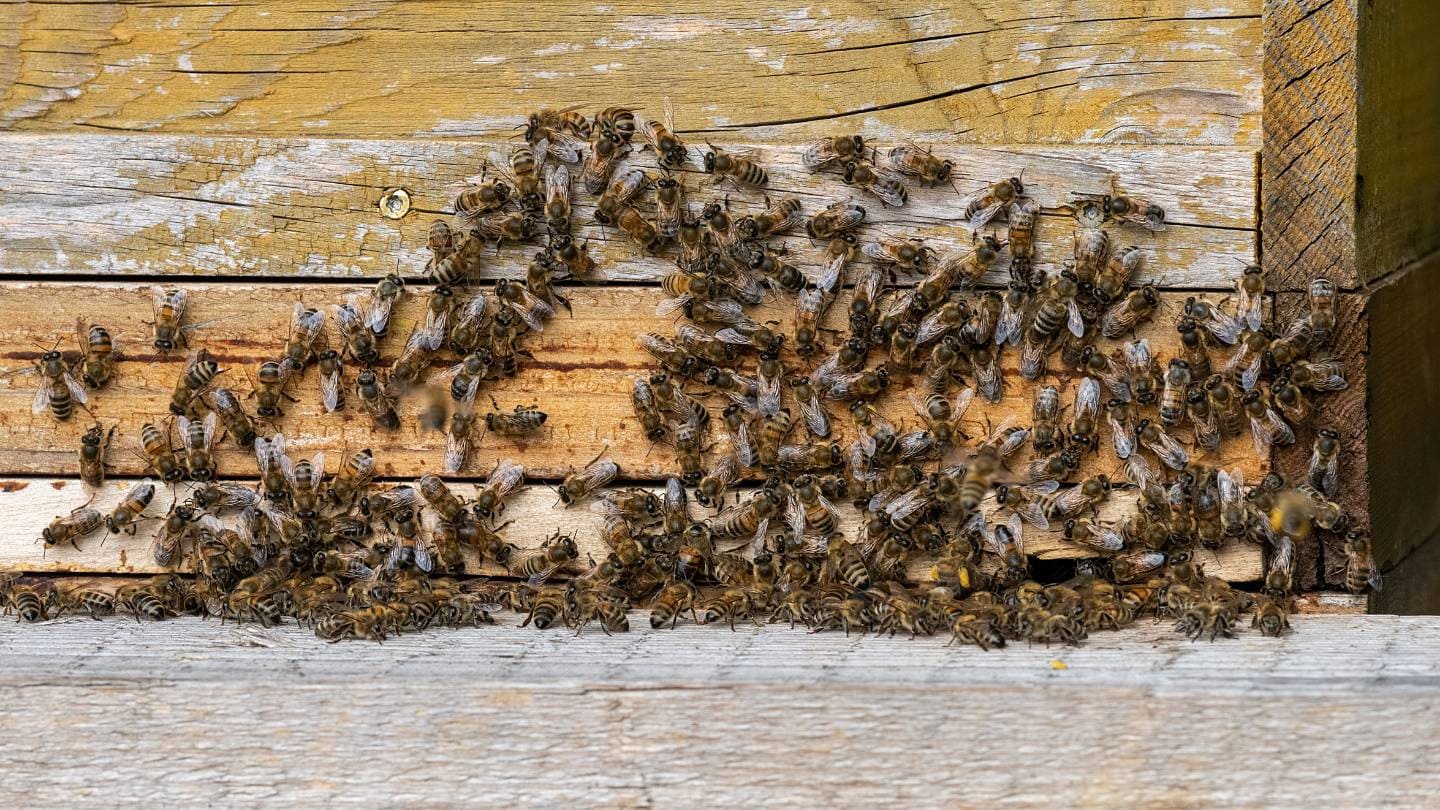
Killer Moths
Bees aren't fond of the smell of mothballs, among other things. Hang mothballs next to the beehive or hives to discourage bees from returning to the area. Another option for keeping bees at bay is to put mothballs in various locations across your yard.
Garlic
The pungent aroma of garlic drives away bees, thanks to their acute sense of smell. Pests like bees and other flying insects dislike garlic's strong, spicy aroma. The best way to use garlic is to crush a few cloves and combine them with water to make a spray. To drive them away, spray it around your house and where they make their home.
Cinnamon
The aroma of cinnamon will cause the bees to seek out a new home. The bees will benefit from a week of daily cinnamon sprinkles around the colony. Also, the bees won't be able to return thanks to these scents.
Conclusion
Beekeepers have found natural ways to keep bugs out of bee colonies without using harsh chemicals. To keep the colonies healthy, they put the bees in smart places and bring in insects that eat other bugs. Varroa mites are a common pest in bee hives. They can weaken bees' immune systems, change the shape of their wings, and shorten their lives. Chemical treatments like acaricides and Integrated Pest Management (IPM) are used to get rid of them now.
IPM can cut down on chemical use, but it needs to be carefully watched and changed to fit the needs of the area. Another idea being thought about is genetic mixing, which would make bees more resistant to Varroa mites. Small hive bugs eat pollen, honey, and bee broods. They can make honey dirty, damage bee broods, and make bees stressed and agitated.
The goal of natural pest control is to get rid of common pests without using dangerous chemicals. Hiring professionals for pest control can help get rid of bugs that are bothersome without putting your health at risk. Professionals in pest control can talk to you about safe and natural ways to get rid of pests, like pyrethrum, which is used in many organic fields, farms, and restaurants around the world.
It might take some time and work to find the most affordable pest control service in your area, but finding the best natural pest control service can help protect bee numbers and their important pollinators.
Getting rid of pests naturally in Sydney can be done in 5 steps: getting rid of water sources, getting rid of clutter, keeping the environment clean, closing off holes, and using natural and organic bug baits. During home checks, water sources should be taken away so that cockroaches and rats can't breed. Things should be sorted and put away in plastic cases with tight lids after the mess is cleared away.
It is very important to keep the area clean, especially under appliances and on hard surfaces. Cockroaches need to be cleaned up regularly to get rid of their food and water sources. Dead cockroaches should also be taken out of places where they can hide. Pipes that come into the house through bathrooms and kitchens should be blocked off. To help close up cracks and holes, weather stripping and glue, plaster, or cement can be used.
Using natural bee colonies to get rid of pests instead of hard chemicals or traps might help if other methods aren't working. Using organic pest control is a better way to get rid of pests because it keeps your home clean and your family healthy. Not only does organic pest control keep your home clean, but it also helps your family stay healthy.
Chemical pesticides are not only dangerous, but they are also bad for the earth. Not only does it not burn the nose as much, but it is also better for the earth. Organic pest control uses biological methods to keep bugs away, so it's not likely that the pests will get used to it. Chemical pesticides are dangerous and can hurt plants and dirt, but they only work for a short time. This type of bug control is also better for families because it is safer for kids to eat.
If you want to get rid of bees without killing them, you could water your yard regularly, kill moths, use garlic, or use cinnamon. These tips can help you get rid of pests and keep your home and yard healthy.
Regular watering can help keep bees from getting into things, and mothballs can keep bees from coming back to the area. You can use garlic to keep bugs away, and cinnamon can draw bees and keep them from coming back.
Using organic pest control instead of chemical poisons is safer and better for the environment. Using natural ways to clean up after yourself and get rid of pests can help protect your home and the environment while also keeping your plants and animals healthy.
Content Summary
- Beekeepers are seeking natural methods to control pests in bee colonies, avoiding harsh chemicals.
- Strategic hive placement and the introduction of predator insects are among the creative solutions employed.
- Experienced beekeepers have tested and proven these natural pest control tactics.
- Varroa destructor mites, parasitic mites attacking honeybee colonies, are a significant threat.
- These mites feed on bees' bodily fluids and spread viruses, impacting bee health and lifespan.
- A severe Varroa mite infestation can lead to the collapse of a bee colony.
- Chemical treatments for Varroa mites can lead to resistance and harm bee health.
- Integrated Pest Management (IPM) combines biological control, cultural practices, and pharmaceutical therapies.
- Genetic breeding is being explored to develop bees resistant to Varroa mites.
- Small hive beetles are another threat, feeding on pollen, honey, and bee broods.
- The larvae of small hive beetles contaminate honey and pollen, affecting the quality of bee products.
- These beetles also damage bee broods, hindering the colony's reproductive capabilities.
- The stress caused by small hive beetles can lead to colony desertion or failure.
- Natural pest management avoids toxic chemicals, focusing on environmentally friendly solutions.
- Pest control experts offer natural methods for a variety of common pests like cockroaches and termites.
- Pyrethrum is a widely used natural pest control substance, popular in organic gardens and farms.
- Finding the most cost-effective natural pest control service can be challenging.
- A 5-step plan for natural pest elimination includes inspecting and addressing water sources.
- Removing clutter reduces hiding and nesting spots for pests like cockroaches and rats.
- Regular cleaning eliminates food sources and traces of pests, reducing infestations.
- Sealing openings in homes prevents pests from entering, especially in kitchens and bathrooms.
- Natural and organic bug bait can be a safe alternative when other methods are insufficient.
- Organic pest control is a compassionate method, avoiding harsh chemicals or traps.
- Organic methods are safer for homes and gardens, keeping the environment chemical-free.
- Organic pest control products often have a reduced scent, making them more pleasant to use.
- Eco-friendly organic pest control avoids soil contamination and protects other plants.
- Pests are less likely to develop resistance to organic methods compared to chemical sprays.
- Organic pest control is safer for families, especially with children, than chemical options.
- Ethical bee removal is important due to the declining honey
- bee population and their critical role in pollination.
- Smoke is an ethical way to remove bees without harming them, and it is used by beekeepers.
- Regular lawn watering can deter ground bees, making the environment unsuitable for them.
- Mothballs can be used to repel bees due to their strong odour.
- Garlic's pungent smell is effective in driving away bees and other flying insects.
- Spraying a garlic and water mixture around the house can keep bees at bay.
- Cinnamon sprinkled around a bee colony can encourage bees to relocate.
- The search for natural pest control methods is driven by the need to protect bee populations.
- Beekeepers are adapting to environmental challenges by exploring sustainable solutions.
- The health of bee colonies is crucial for the stability of our food web.
- Recognising common pests in bee hives is key to effective pest management.
- Varroa mites not only harm bees but also spread diseases within colonies.
- Overuse of chemical treatments against mites can have adverse effects on bee colonies.
- Integrated Pest Management (IPM) offers a holistic approach to controlling hive pests.
- Breeding Varroa-resistant bees is a promising yet time-consuming strategy.
- Small hive beetles pose risks to both the quality of bee products and the health of the colony.
- Natural pest control services offer a safer alternative for dealing with common household pests.
- The article provides insights into effective, natural pest control techniques.
- Identifying and eliminating water sources is crucial in natural pest control.
- Decluttering homes is an effective step in reducing pest infestations.
- Maintaining cleanliness is vital in preventing pest colonisation.
- Sealing potential entry points is an essential measure in keeping pests out.
Frequently Asked Questions
Bee colonies can be affected by pests such as Varroa mites, wax moths, and hive beetles. It's crucial to control them naturally to avoid harmful chemical residues in honey and beeswax, ensuring the overall health of the colony and the quality of bee products.
Essential oils like tea tree oil, peppermint oil, and thyme oil have proven effective against bee pests. Mix a few drops with a carrier oil and apply it to the hive or use a diffuser. These oils have natural insecticidal properties without harming the bees.
Planting bee-friendly flowers like marigolds, lavender, and mint around the hive can deter pests. These plants release natural compounds that repel pests while providing a source of nutrition for bees. It's an eco-friendly way to create a protective barrier around the colony.
Opting for well-ventilated hive designs can deter pests. Screened bottom boards improve airflow and reduce humidity, making the hive less attractive to mites and beetles. Additionally, using smaller entrances helps bees defend against intruders.
Introduce beneficial insects like ladybugs or predatory mites to the beekeeping environment. These natural predators help control pest populations by preying on harmful insects, creating a balanced ecosystem within the hive without resorting to chemical interventions.




